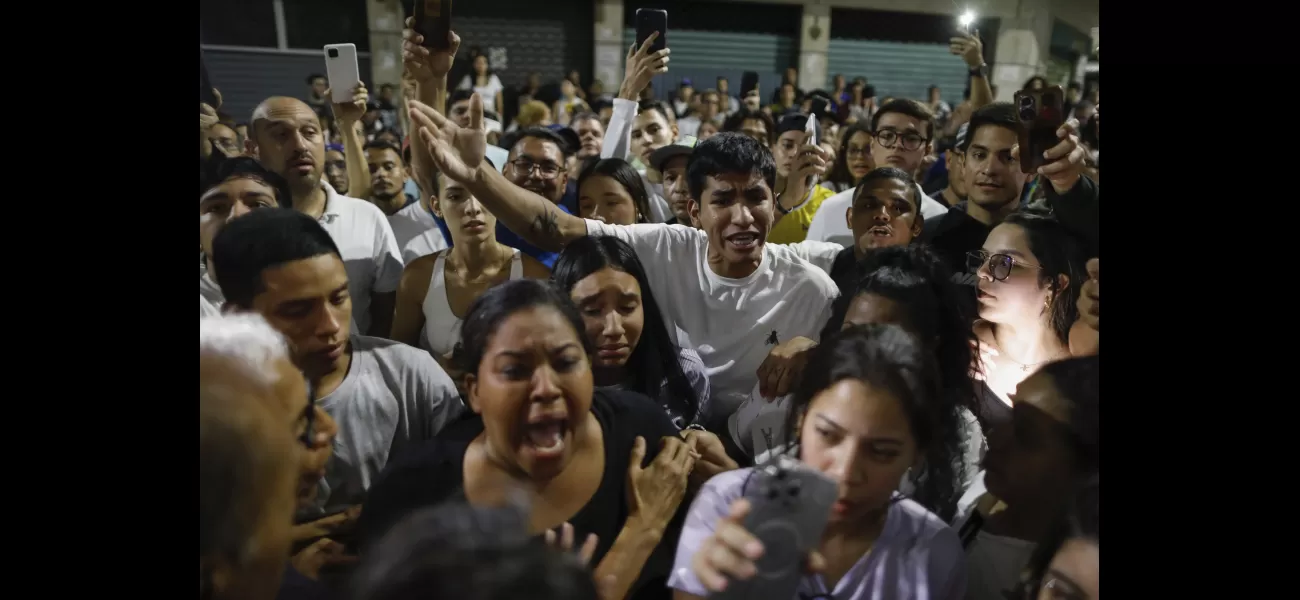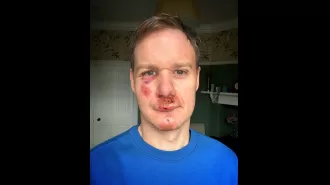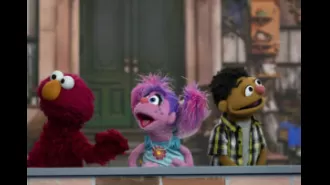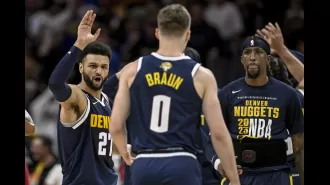Maduro wins Venezuela's presidential election.
Maduro wins Venezuela election despite opposition's plan to challenge results.
July 29th 2024.

On Sunday, Nicolás Maduro was declared the winner of Venezuela's presidential election. However, his opponents were not ready to accept the results and were preparing to dispute them. This sets the stage for a high-stakes showdown that will determine the future of the South American nation, specifically whether it will continue under one-party rule.
According to the National Electoral Council, Maduro secured 51% of the vote, while his opponent Edmundo González received 44%. The council announced these results based on 80% of voting stations, indicating an irreversible trend. However, the official tallies from all 15,797 voting centers were not released immediately, causing frustration for the opposition, who claimed to only have access to 30% of the ballot boxes.
The delay in announcing the results, six hours after the polls were supposed to close, revealed a heated debate within the government on how to proceed. This was due to the opposition's early claims of victory in the evening. Representatives from the opposition reported that they had tallies from their campaign representatives at the polling stations, showing González with a significant lead over Maduro.
González, a retired diplomat, was an unlikely opponent for Maduro, seeking a third term in office. He was relatively unknown to voters before being chosen as a last-minute replacement for the opposition's Maria Corina Machado in April. Despite this, opposition leaders were already celebrating what they deemed a landslide victory for González, both online and outside of a few voting centers.
Merling Fernández, a 31-year-old bank employee, expressed her joy as a representative from the opposition campaign announced results showing González with more than double the votes of Maduro at a voting center in a working-class neighborhood of Caracas. Nearby, a group of people sang the national anthem, declaring this as the path towards a new Venezuela. Fernández, holding back tears, added that they were all tired of the current leadership.
In the lead up to the election, US Vice President Kamala Harris showed her support by stating, "The United States stands with the people of Venezuela who expressed their voice in today's historic presidential election. The will of the Venezuelan people must be respected."
Voters started lining up at polling centers across the country in the early hours of Sunday, sharing water, coffee, and snacks while waiting for several hours. The outcome of this election will have ripple effects throughout the Americas, with both government supporters and opponents signaling their interest in joining the millions of Venezuelans who have already left the country in search of better opportunities.
The election was scheduled to coincide with the 70th birthday of former President Hugo Chávez, who passed away in 2013, leaving Maduro in charge of his Bolivarian revolution. However, Maduro and his United Socialist Party of Venezuela have become increasingly unpopular as many blame their policies for the country's current state of economic crisis, including low wages, widespread shortages, and hyperinflation.
The opposition managed to unite behind a single candidate for the first time after years of infighting and election boycotts. Machado, who won over 90% of the opposition's October primary, was blocked from running for any office for 15 years by the Maduro-controlled supreme court. She was then barred from registering for the presidential race, leading to González, a political newcomer, being selected as her substitute.
Maduro, after casting his vote, promised to recognize the election results and urged all other candidates to do the same. He also emphasized that no one would create chaos in Venezuela, stating, "I recognize and will recognize the electoral referee, the official announcements, and I will make sure they are recognized." Venezuela, known for having the world's largest proven oil reserves and once boasting the most advanced economy in Latin America, has been in a downward spiral since Maduro took power. Plummeting oil prices, economic sanctions imposed by the US, and hyperinflation have led to social unrest and mass emigration.
Maduro's campaign focused on economic security, citing entrepreneurship, stable currency exchange, and lower inflation rates as proof of progress. The International Monetary Fund predicts that the economy will grow by 4% this year, one of the fastest rates in Latin America. However, the majority of Venezuelans have not seen any improvement in their quality of life, with many struggling to afford basic necessities despite working multiple jobs.
The opposition has tried to capitalize on the vast inequalities caused by the crisis, where the US dollar has replaced the Venezuelan bolivar as the primary currency. González and Machado's campaign promised to create more jobs and opportunities for Venezuelans, hoping to entice those who have left to return home and reunite with their families. The outcome of this election will have a significant impact on the future of Venezuela, and the whole world will be watching.
According to the National Electoral Council, Maduro secured 51% of the vote, while his opponent Edmundo González received 44%. The council announced these results based on 80% of voting stations, indicating an irreversible trend. However, the official tallies from all 15,797 voting centers were not released immediately, causing frustration for the opposition, who claimed to only have access to 30% of the ballot boxes.
The delay in announcing the results, six hours after the polls were supposed to close, revealed a heated debate within the government on how to proceed. This was due to the opposition's early claims of victory in the evening. Representatives from the opposition reported that they had tallies from their campaign representatives at the polling stations, showing González with a significant lead over Maduro.
González, a retired diplomat, was an unlikely opponent for Maduro, seeking a third term in office. He was relatively unknown to voters before being chosen as a last-minute replacement for the opposition's Maria Corina Machado in April. Despite this, opposition leaders were already celebrating what they deemed a landslide victory for González, both online and outside of a few voting centers.
Merling Fernández, a 31-year-old bank employee, expressed her joy as a representative from the opposition campaign announced results showing González with more than double the votes of Maduro at a voting center in a working-class neighborhood of Caracas. Nearby, a group of people sang the national anthem, declaring this as the path towards a new Venezuela. Fernández, holding back tears, added that they were all tired of the current leadership.
In the lead up to the election, US Vice President Kamala Harris showed her support by stating, "The United States stands with the people of Venezuela who expressed their voice in today's historic presidential election. The will of the Venezuelan people must be respected."
Voters started lining up at polling centers across the country in the early hours of Sunday, sharing water, coffee, and snacks while waiting for several hours. The outcome of this election will have ripple effects throughout the Americas, with both government supporters and opponents signaling their interest in joining the millions of Venezuelans who have already left the country in search of better opportunities.
The election was scheduled to coincide with the 70th birthday of former President Hugo Chávez, who passed away in 2013, leaving Maduro in charge of his Bolivarian revolution. However, Maduro and his United Socialist Party of Venezuela have become increasingly unpopular as many blame their policies for the country's current state of economic crisis, including low wages, widespread shortages, and hyperinflation.
The opposition managed to unite behind a single candidate for the first time after years of infighting and election boycotts. Machado, who won over 90% of the opposition's October primary, was blocked from running for any office for 15 years by the Maduro-controlled supreme court. She was then barred from registering for the presidential race, leading to González, a political newcomer, being selected as her substitute.
Maduro, after casting his vote, promised to recognize the election results and urged all other candidates to do the same. He also emphasized that no one would create chaos in Venezuela, stating, "I recognize and will recognize the electoral referee, the official announcements, and I will make sure they are recognized." Venezuela, known for having the world's largest proven oil reserves and once boasting the most advanced economy in Latin America, has been in a downward spiral since Maduro took power. Plummeting oil prices, economic sanctions imposed by the US, and hyperinflation have led to social unrest and mass emigration.
Maduro's campaign focused on economic security, citing entrepreneurship, stable currency exchange, and lower inflation rates as proof of progress. The International Monetary Fund predicts that the economy will grow by 4% this year, one of the fastest rates in Latin America. However, the majority of Venezuelans have not seen any improvement in their quality of life, with many struggling to afford basic necessities despite working multiple jobs.
The opposition has tried to capitalize on the vast inequalities caused by the crisis, where the US dollar has replaced the Venezuelan bolivar as the primary currency. González and Machado's campaign promised to create more jobs and opportunities for Venezuelans, hoping to entice those who have left to return home and reunite with their families. The outcome of this election will have a significant impact on the future of Venezuela, and the whole world will be watching.
[This article has been trending online recently and has been generated with AI. Your feed is customized.]
[Generative AI is experimental.]
0
0
Submit Comment





